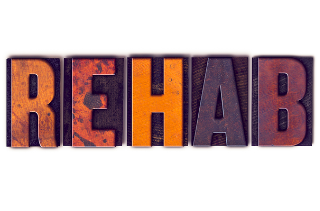Marijuana can cause mild physical dependency, but is better known to be psychologically addictive in 9-11% of users. So, when you’re trying to quit smoking weed for good, what can you do?
Fortunately, rehab for marijuana addiction in either an inpatient or outpatient setting can help. More on what to expect during marijuana rehab here. Then, we invite your questions about rehab or quitting marijuana at the end.
Marijuana is not harmless!
While some individuals believe that marijuana is relatively harmless, this generalization couldn’t be further from the truth. In addition to causing long-term health effects, marijuana can be addictive. A marijuana addiction can result in numerous problems, including:
- health problems
- financial or work problems
- family problems
- legal problems
- relationship or problems with intimacy
The main signs of addiction to marijuana include:
1. Increasing neglect of important areas of life for the drug
2. Continued use despite obvious harms or attempts to stop
3. Compulsion or craving weed
Particular behavioral signs can include:
- smoking/consuming weed in larger amounts than meant
- smoking/consuming weed for longer times than meant
- wanting to cut down or stop but being unable to
- spending more time getting, using, and recovering from the effects of being high
- craving a high
- neglect of work, home, or school responsibilities
- continuing to use when it’s causing you problem or danger
- needing more marijuana for desired effects (tolerance)
- withdrawal symptoms when drug level drops (physical dependence)
Rehab for marijuana addiction
Rehab for marijuana is generally very effective in overcoming cannabis addiction. Rehab programs help marijuana users better understand their addictions and get the treatment they need. Typical marijuana rehab programs generally utilize most, if not all, of the following services and treatment methods.
1. An initial assessment
When entering rehab, you will typically first undergo an initial assessment. This evaluation helps addiction treatment specialists determine the severity and possible causes of addiction. Underlying mental or emotional illnesses might also be diagnosed during the initial intake assessment.
Drug tests for marijuana in your system and interviews help medical staff determine the level of physical and psychological dependency you’ve developed to marijuana. This “Baseline” assessment will be re-visited throughout your time in rehab, and an addiction treatment plan based on your individual situation.
2. Marijuana detox, if necessary
Medical detox is usually not necessary during rehab for marijuana. Symptomatic treatmentcan be used to help ease some of the uncomfortable marijuana withdrawal symptoms including:
- agitation
- headaches
- insomnia,
- mood changes
- nauseas
Furthermore, there are no specific medications currently used to treat symptoms of marijuana withdrawal (or addiction). However, individuals in rehab for marijuana may take over-the-counter or prescription medicines to help ease withdrawal symptoms. Some medications, such as antidepressants can help address chemical inbalance in the brain. However, psychological interventions are preferred over pharmaceutical treatments.
3. Psychological and behavioral treatments
Psychological treatments are typically the cornerstone of marijuana addiction treatment. You will often go through several therapy and counseling sessions during rehab in both individual and group settings. These psychological treatments help recovering you identify and address underlying psycho-emotional issues which compel use.
Psychotherapy and/or behavioral therapy also aims to teach addicts how to free themselves from relying on marijuana or coping with life by gtting high. Replacing old thought and behavior patterns with new, healthier alternatives is highlighted, especially in terms of addressing stress, anxiety, or depression.
4. Education about marijuana abuse
In order to beat any addiction, a person must first have a thorough understanding of it. Education sessions are common during rehab for marijuana for this reason. By understanding rationally the mechanism of marijuana on the central nervous system, users can then make informed decisions in the future. You will also learn how marijuana affects your life and methods you can use to deal with triggers or overcome cravings.
5. Supportive services during rehab
Many marijuana rehab programs offer a number of social services, such as case management, financial assistance and vocational training. These supportive services help make the addiction treatment process less stressful and more effective. Support services during marijuana rehab may also include aftercare preparations (housing, support groups, counseling) as well as creating a relapse prevention plan to help patients transition to life outside a rehab center.
Rehab for marijuana questions
Hopefully, we’ve answered some of your questions about rehab for marijuana. However, please don’t hesitate to leave a comment or questions below.
You can also share your own experiences with marijuana addiction or marijuana rehab in the comments section. We look forward to helping and responding to all of our readers and will try to respond to you ASAP.









Related Posts